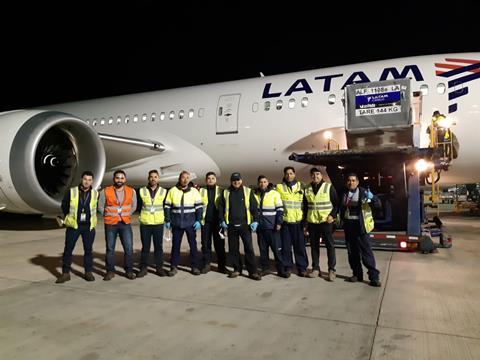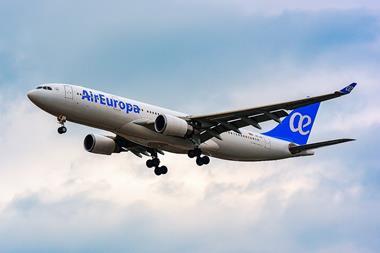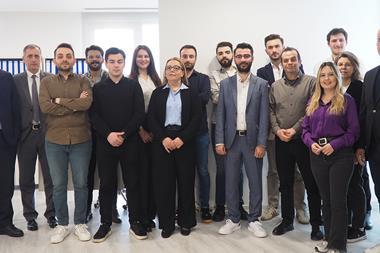
LATAM Cargo has modified its freighter itinerary in order to address capacity shortages caused by the cancellation of passenger flights in response to the coronavirus outbreak.
The airline, which operates 11 B767-300F, has increased freighter capacity between Santiago (Chile) and Miami (US) fivefold in order to offer salmon exporters a robust solution.
Meanwhile, capacity between Europe and South America was increased 20%, adding up to a total of six weekly frequencies, largely catering for the transportation of automotive spare parts, general cargo and medicines to South America, as well as transportation of perishable products to Europe.
In addition, frequencies between North America and South America were increased by almost 15%, totaling 26 frequencies each week.
Furthermore, the company will begin operating a Santiago (Chile) – Los Angeles (US) freighter route in order to offer additional capacity for salmon transportation and to ensure coverage in the US west coast.
The return trip will be Los Angeles (USA) – Mexico City (Mexico) – Lima (Peru) – Santiago (Chile). This route will benefit the transportation of technology products, spare parts and health-oriented products.
LATAM will also utilise its passenger aircraft as freighters. The two first international flights operated using this strategy took place in the Santiago (Chile) – Mexico City (Mexico) route using Boeing 787-900 aircraft, totaling more than 80 tons of cargo—primarily salmon.
Meanwhile, an internal Peru flight used an Airbus A320 aircraft on the Lima-Iquitos route. The region depends on air transportation due to its difficult access by land or sea. By using seat containers, the company mainly transported perishable products, medicines and general cargo.
LATAM Cargo chief executive Andrés Bianchi said: “The difficulties imposed by this contingency, force us to seek alternatives to satisfy our clients’ needs.
"This new itinerary, designed and implemented at an unprecedented pace, will allow us to take advantage of our freighter fleet in order to partially meet the shortfall in belly capacity. We are working to provide our clients with more and better choices and serve as support for the region’s economy."
He added: “There are many difficulties, but we are aware of the key role we play in delivering supplies to countries, and we will continue with our focus on providing our clients with more solutions.”















